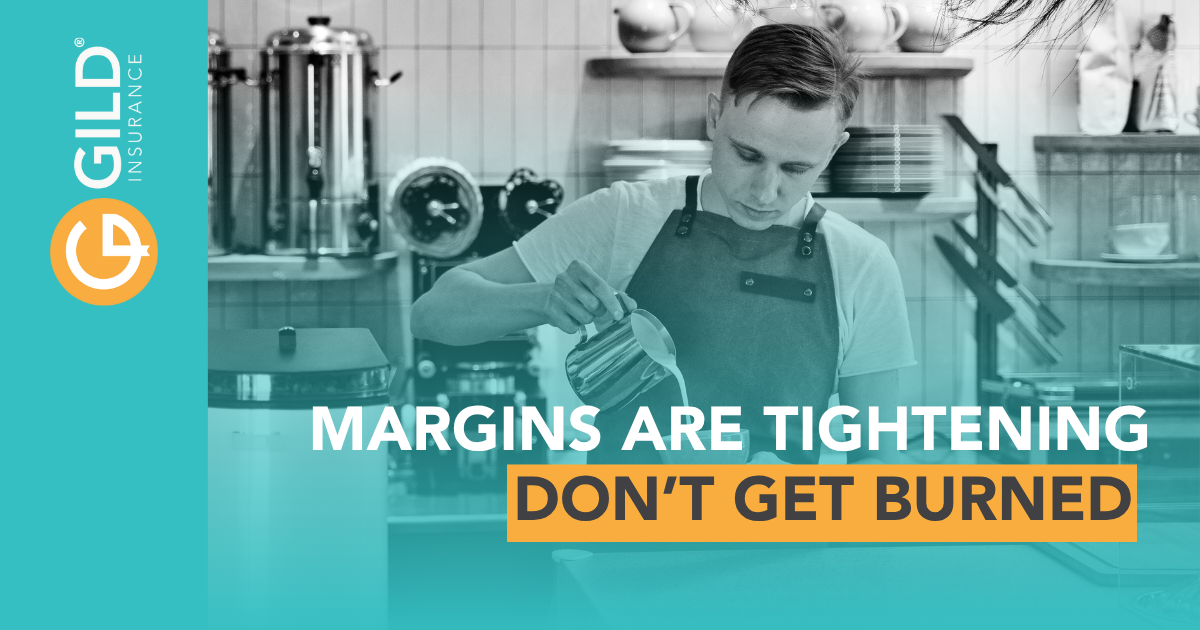Small business owners, brace for a jolt! Coffee prices are going up as new U.S. tariffs spike coffee, chocolate, and cocoa costs starting August 1, 2025. Cafes, bakeries, and chocolatiers, your budgets are about to take a hit.
At Gild, we’re tracking this margin-crusher. Supply shortages already inflate ingredient costs, and these tariffs will squeeze your margins tighter. Importing beans or cocoa? Act now. Recalculate costs and warn your customers. Stay sharp and keep your biz brewing!
So, What’s the Deal—Are Tariffs to Blame for Coffee Prices Going Up?
Yes! In April 2025, the first round of tariffs hiked prices. Now, the U.S. is slapping a 50 percent tariff on Brazil, which currently supplies about one-third of all American coffee. Imports from Vietnam and Indonesia? They’re looking at 20 percent and 19 percent tariffs, respectively. Most other countries? A 10 percent base rate.
These hikes land in a market already wrestling with chaotic pricing, and at Gild, we’re seeing just how much it’s squeezing small business owners. Since 2022, coffee prices have surged more than 70 percent.
Why? Think climate chaos and tangled supply chains. Droughts, frost, and fires in top-producing regions like Brazil, plus supply disruptions in Vietnam, have significantly shrunk the bean supply.
And the bad news doesn’t end with your morning cappuccino. Chocolate is a sweet disaster. A 10% base tariff on chocolate imports, plus 20% for EU chocolate, 31% on Swiss chocolate, and 10% on raw cocoa from Ivory Coast doesn’t deliver the cocoa glow-up small business owners are hoping for.
Why Are Chocolate Prices Going Up?
Cocoa prices have absolutely exploded, quadrupling from $2,500 to almost $10,000 per metric ton. Droughts, devastating crop disease, and regional instability, especially in West Africa where most of the world’s cocoa comes from, continue to shrink global supply.
If you’ve wondered why your bean and bar costs feel out of control, now you know. Global scarcity already pushed prices sky-high and these new tariffs will send them into orbit.
Current Tariff Rates And Pricing Strategies
Here’s how the new tariffs stack up. Whether you source beans, bars, or bulk ingredients, these numbers show just how much your costs could rise.
Coffee:
- 50% on Brazilian imports
- 20% on coffee from Vietnam
- 19% on coffee from Indonesia
- 10% baseline tariff for most other countries
Chocolate and Cocoa:
- 10% base tariff on all chocolate
- 20% on chocolate from the EU
- 31% on chocolate from Switzerland
- 10% on raw cocoa from Ivory Coast
These aren’t just minor bumps. For many businesses, ingredient costs could spike 10 to 25 percent or more, depending on where you source and how much you import.
Why Prices Going Up Matters Right Now
These tariffs aren’t arriving in a calm sea. Small businesses already battle higher labor costs, rising rent, and other surging overhead. If you rely on imported chocolate or specialty coffee beans, brace yourself for a price jump. That shift impacts your menu, your customer relationships, and frankly, your very survival strategy.
How This Plays Out Across Industries:
- Coffee Shops: Expect higher bean costs, fewer affordable specialty options, and tough pricing decisions.
- Bakeries: If your recipes call for cocoa or premium coffee, you’ll feel the squeeze.
- Chocolatiers: You’re facing the most intense pressure. With cocoa already at historic highs, these added tariffs create a bitter recipe.
No matter your setup, the reality is the same; higher costs are coming fast, and small businesses will feel it first. Now’s the time to reassess pricing, tighten margins where you can, and get ahead of the changes before they hit your bottom line . . . again.
The Uneven Playing Field
Let’s be real: Large corporations have armies of lawyers and supply chain gurus to navigate these choppy waters. They can hedge, diversify, and absorb hits in ways small businesses simply can’t. These tariffs, whether intentionally or not, tend to favor the giants. It’s an uneven field, now even more so.
What Small Businesses Can Do Now:
- Review your suppliers and sourcing options.
- Run pricing scenarios based on updated import costs.
- Be transparent with customers about why changes are happening.
- Consider adjusting your menu to address high-tariff ingredients.
The Final Pour – Brace for Impact And Stay Sharp
These tariffs don’t just affect global trade. They hit every small business that serves a cappuccino, a brownie, or a bonbon. You don’t need to panic, but you do need a plan.
That’s where Gild comes in: smarter coverage, realistic pricing, and support that truly gets small business. You can get a quote online anytime or schedule a time to talk to a Gild agent about your coverage needs.
Starting August 1, your raw materials will cost more and your margins will feel it. Stay sharp. Stay resilient. The pressure is real, but so is your ability to adapt and thrive.
3 https://www.jpmorgan.com/insights/global-research/commodities/cocoa-prices




